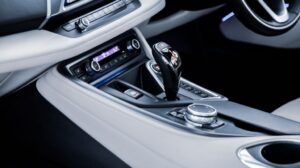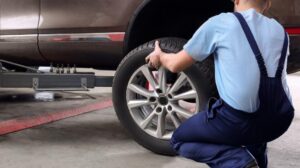Keeping your vehicle clean and rust-free is not only important for its appearance but also for its overall longevity. Regular car washing helps to protect the paintwork from environmental elements such as dirt, dust, and pollutants, while also preventing the formation of rust. In this article, we will explore the science behind car washing and provide you with tips on the right techniques and products to use in order to maintain your vehicle’s shiny and rust-free appearance.
The Importance of Car Washing
Car washing is not just a cosmetic task; it serves a vital purpose in preserving the integrity of your vehicle. When your car is exposed to the elements, it accumulates dirt, dust, and other contaminants on its surface. Over time, these particles can cause scratches and damage to the paintwork. Additionally, if left untreated, moisture can seep into these scratches and lead to the formation of rust. Regular car washing helps to remove these harmful substances and prevent rust from developing.
The Science Behind Car Washing
Car washing involves a combination of mechanical and chemical processes to effectively clean the vehicle’s surface. The mechanical action of scrubbing or rubbing helps to dislodge dirt particles from the paintwork, while the chemical agents in car wash products break down and dissolve contaminants.
When washing your car, it is important to use the right techniques to minimize the risk of scratching the paintwork. Start by rinsing the car with water to remove loose dirt and debris. Then, use a soft sponge or microfiber cloth along with a gentle car wash soap to clean the surface. Avoid using harsh detergents or abrasive materials, as they can damage the paint. Rinse the car thoroughly after washing to remove any soap residue.
Choosing the Right Products
Using the right products is crucial for achieving optimal results when washing your car. Look for car wash soaps that are specifically formulated for automotive use. These products are designed to remove dirt and grime without damaging the paint or stripping away the protective wax layer. Avoid using household cleaners or dish soaps, as they can be too harsh for automotive finishes.
In addition to car wash soap, consider using specialized products such as clay bars or paint sealants to further enhance the cleanliness and protection of your vehicle. Clay bars are used to remove embedded contaminants that cannot be removed through regular washing. Paint sealants provide an extra layer of protection against UV rays, dirt, and water.
Preventing Rust Formation
Rust is the enemy of any vehicle owner. It not only affects the appearance of your car but also compromises its structural integrity. To prevent rust formation, it is important to keep your vehicle clean and dry. After washing your car, make sure to dry it thoroughly, paying special attention to areas prone to moisture buildup such as door edges, wheel wells, and the undercarriage.
Applying a protective wax or paint sealant after washing can also help to prevent rust by creating a barrier between the paint and the elements. Regularly inspect your vehicle for any signs of rust or paint damage, and address them promptly to prevent further corrosion.
Conclusion
Car washing is not just a chore; it is a science. By understanding the importance of car washing and using the right techniques and products, you can keep your vehicle looking shiny and rust-free for years to come. Remember to wash your car regularly, choose the right products, and take the necessary steps to prevent rust formation. Your car will thank you with a long-lasting, beautiful appearance.
Inspiration: AutoAdvisor




